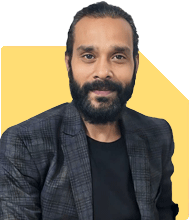Hi Sir, I have an LIC New Bima Gold Plan 179 policy with a Sum Assured of 5 lacs INR that started in 2008 and would end in 2028 (i.e. premium paying term of 20 years). The policy term is also 20 years. The policy has paid me survival benefits to the tune of 10% of Sum Assured in the 4th, 8th, 12th and 16th years since commencement so far. Now my questions are as follows:
Question 1) In 2028, what would be the final payout? Will it be A) Premiums paid (+) Sum Assured (+) Loyalty additions (-) Survival Benefits Paid or B) Premiums paid (+) Loyalty additions (-) Survival Benefits Paid?
Question 2) How is Loyalty addition calculated for this policy?
Ans: You have maintained the LIC New Bima Gold policy consistently for many years. That shows your patience and commitment. Many investors do not hold policies this long. You have done that with discipline.
Now you are in the final phase of this plan. With only 3 years to go, it is important to clearly understand what happens at maturity. Let us address both of your questions one by one and also explore some deep-level insights you must consider now.
Understanding What Happens in 2028 – The Maturity Payout Structure
Let us begin with your first question on how the final payout is calculated in 2028.
This policy is a Money Back plan. It pays part of the Sum Assured during the term as Survival Benefits. Then at maturity, it pays the balance Sum Assured (if any) and Loyalty Additions.
You have already received 10% of Sum Assured each in the 4th, 8th, 12th and 16th years. That is 40% of Rs 5 lakh — total Rs 2 lakh paid already.
So now, here is what you will receive in 2028:
The remaining 60% of Sum Assured, which is Rs 3 lakh
Loyalty Additions (only declared at maturity, non-guaranteed)
There is no return of total premiums paid. There is no extra payout for paying premiums regularly. Premiums are not refunded. They are only the cost of insurance and benefits.
So the correct answer is:
Final payout = Remaining Sum Assured (60%) + Loyalty Additions
That is, Option B in your question is correct.
You will not receive full Sum Assured plus Loyalty Additions.
You will not get total premiums paid back.
Your received payouts already include part of the Sum Assured. Hence, final payment includes only what is left of the Sum Assured and any loyalty addition.
Dissecting Loyalty Addition – How It Is Calculated
Now your second question: How is Loyalty Addition (LA) calculated?
LA is a one-time bonus declared at maturity.
It is based on Sum Assured, not the premiums paid.
It is not guaranteed. LIC declares it depending on profits.
LA rate is per Rs 1000 Sum Assured.
Your policy’s LA will be announced only at maturity.
Factors that impact LA:
LIC’s annual surplus and valuation.
Type of policy (Money Back, Endowment, etc.).
Policy term. Longer policies usually get better LA.
Consistent premium payment is essential to be eligible.
You can expect LA between Rs 20 to Rs 50 per Rs 1000 Sum Assured.
For Rs 5 lakh SA, this could be Rs 10,000 to Rs 25,000 approx.
However, it could vary. There is no fixed number. Past performance does not guarantee future additions.
Actual Returns from This Policy – An Uncomfortable Reality
You started this policy in 2008. You are paying premiums for 20 years. You have received some money in between. And you will get some more in 2028.
But let’s step back and assess what this policy really delivered:
You paid premiums for 20 years.
Received Rs 2 lakh across four survival benefit payouts.
Will receive Rs 3 lakh + LA (around Rs 10,000 to Rs 25,000).
Total maturity may be around Rs 3.1 to Rs 3.25 lakh.
This means over 20 years, your Rs 5 lakh sum assured got distributed back to you. But it grew very little. The internal rate of return is often just 4% to 5% in these plans.
Inflation eats away this return.
What You Could Have Done Instead – And Can Still Do Now
Had you put this amount in a mutual fund through a well-chosen SIP, the outcome could have been different:
SIPs in good equity mutual funds can deliver 10%-12% over 15-20 years.
Even with Rs 2000 per month SIP, you may build Rs 15–18 lakh over 20 years.
Instead of Rs 3.2 lakh in return, you may have got five times that.
Mutual funds offer growth, flexibility, and transparency.
Even now, it is not too late.
If this is your only LIC type policy, you may complete the last 3 years. Then shift full maturity amount to mutual funds through Systematic Transfer Plans (STP) into equity funds. If you hold other LIC/ULIP/traditional plans, we suggest surrendering and reinvesting.
What You Must Do Immediately
Go through your full LIC policy
Check how much premium you have paid so far.
Check survival benefit payouts received so far.
Ask LIC branch to give expected Loyalty Addition range.
Evaluate if you have similar low-yield policies.
List all investment-linked insurance policies.
Meet a Certified Financial Planner (CFP) to analyse surrender value, switch options.
If no heavy penalty or if break-even is achieved, surrender now.
Redeploy in long-term mutual funds with CFP support.
Why These LIC-type Policies Underperform
They offer insurance + investment combined.
They lack flexibility in payouts.
Most give returns that fail to beat inflation.
Real wealth creation never happens in them.
Your money gets locked for 15-25 years.
Early exit is allowed but not attractive due to penalties.
Insurance is for protection. Investment is for growth. Do not mix both.
Role of Mutual Funds for Long-Term Goals
Mutual funds offer transparent, regulated growth.
Different types for different goals: equity, hybrid, debt.
You can select based on time, risk, and needs.
Funds are actively managed. Portfolio managers adjust strategy as per markets.
Long-term SIPs build wealth silently and strongly.
Avoid index funds. They do not adjust during falls. They just copy the market. Actively managed funds with professional MFD and CFP support do much better.
Also avoid direct mutual funds. You miss out on guidance, portfolio reviews, and behavioural support. Regular funds with CFP supervision give long-term discipline and support.
Future-Proofing Your Finances – Going Beyond This One Policy
Use this opportunity to do a 360-degree portfolio review:
Analyse all LICs, ULIPs, endowment policies.
Exit or convert them to mutual fund flows.
Create a customised education goal portfolio.
Build a retirement income strategy with SWP method.
Protect with term insurance, not mixed plans.
Set up family emergency fund in liquid mutual funds.
Ensure health insurance is updated and adequate.
This creates a strong financial safety net and future corpus.
Final Insights
Your LIC policy will soon mature. It gives a fixed amount with a loyalty bonus.
But its return is very low over 20 years. It underperformed inflation.
Now is the time to realign your full financial life. Shift from traditional plans to modern, growth-focused solutions. Mutual funds, if selected and managed with guidance, offer better wealth-building.
You still have time to optimise the rest of your life’s earnings.
Take control now.
Best Regards,
K. Ramalingam, MBA, CFP,
Chief Financial Planner,
www.holisticinvestment.in
https://www.youtube.com/@HolisticInvestment






















